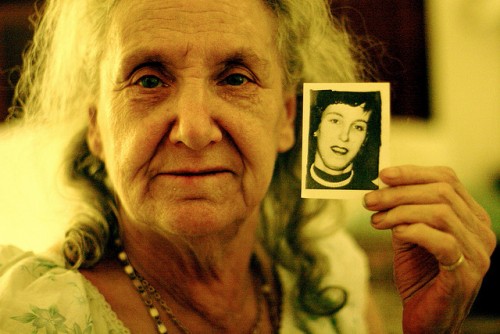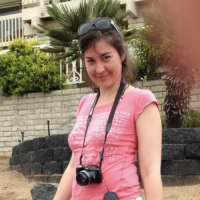Our most pressing lessons often stem from situations that happen right under our noses.
Sure, reading up on ego eradication, coloring your stress away and hours of therapy help too.
But sometimes having the awareness to simply observe our surroundings can yield some pretty interesting findings—like this one.
My gramma is around 85 years old. I moved in with her a little over a year ago for a few reasons, but primarily because of the risks her fading memory had brought about. Little did I know, that this experience would introduce me to an entirely new understanding of her struggle.
This was one woman who had spent her entire life taking care of people. As the caregiver she lived to serve and anticipate everyone else’s desires. That, I always knew. What I hadn’t realized however, was the shadow side of this choice.
By adopting this lifestyle as her source of identity and fountain of value, a huge, if not central aspect of her self was neglected—the part that exists for every human being regardless of status and title, the inner self.
What I’ve witnessed in the past few months is the tragedy of what happens when we spend our lives associating our value with a certain facet of our personality. A facet that may be well meaning, but whose neediness and thirst for validation ends up usurping our ability to connect to our deeper self. A self that cares not whether we’ve done things rightly or wrongly, but simply loves us for who we are.
Now my grandmother is the sweetest thing, but if you could hear her mumbling under her breath, you’d hear the taunting of a ferocious bully—a person struggling with self-compassion, consistently degrading her worth because of her inability to be or be perceived as useful.
Can you imagine building your entire life around a certain persona just to have it abandon you? In the absence of being able to live up to this ego-driven identity, she passes her days in a mental babble of guilt and fear with occasional refreshing bouts of comedic genius.
As a mindfulness junkie and caregiver in training, this situation has baffled and disturbed me. One, because trying to take care of someone who doesn’t feel like they deserve it is exhausting and heartbreaking. Two, because I keep seeing how things might have been different had she lived with more presence and pleasure. I keep seeing a life that could have been dedicated to the people she loved, but not to the detriment of her own self esteem and sense of wholeness. A life where she wouldn’t have had to choose between self- love and societal approval.
We often focus on the immediate detriments of not taking some time to nurture ourselves, like our fragile relationships, stiff shoulders and binge eating. However, witnessing a person who’s coasted along without any spiritual maintenance over the years, is a whole other story.
At this point finding stillness isn’t simply a luxury we can’t afford. It’s a threatening state of mind, an unfriendly and dark place draped in cobwebs and ghostly reflections.
Think the portrait of Dorian Gray, but for the mind.
Gramma will make 10 pots of coffee, take out the empty bags of trash, polish things that are squeaky clean and walk around aimlessly, just to avoid stillness—just to avoid herself. To reduce the mirroring effects of silence, the TV blasts for most of the day.
“But I feel like I should be doing something.”
At 87, she still hasn’t found her peace.
To ease this need to be doing, we engage in simple meditations like untangling jewelry, folding wash clothes and chopping vegetables.
It gets her mind off the desire to be useful and allows her to find some temporary repose.
Sharing this is hard—even shameful, but it felt like her story could be helpful to many of us who feel that we are defined by what we do versus who we are.
It might also help us look at the elderly with more compassion as we empathize with their struggle to feel relevant and valued. And I think that would make her feel better knowing that she could be useful in that way.
~
Author: Katerina Pappas
Editor: Khara-Jade Warren
Image: Kris Krüg/ Flickr
~











Read 10 comments and reply